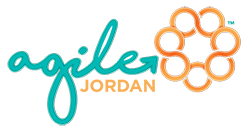
They say “Trust takes years to build, seconds to break, and forever to repair.” And it cannot be more true in an age of speed, urgency, and endless stream of conflicting information. Trust is more crucial and fragile than ever before.
Trust is the foundation of collaboration, creativity and innovation. Why? because I look at trust internally and externally in a constant feedback loop. Trust internally is trust in self that trying and the possibility of failing is not a statement of failure of character or intellect, but a single step closer to the answer. Trust externally goes to others as belief in their feedback and empathizing with their problems, while it comes from knowing that others will lift you up when you need them and work with you to make the work a success.
Observing organizations with low levels of trust in their employees will inherently cause a lack of trust from the employees in their organizations. This is reflected in rules and extreme bureaucracy. These low levels of trust accompany low levels in innovation and sustainable financial success.
This doesn’t apply only to organizations, but also to nation states and its citizens who need trust in the institutions and officials to focus on creating value. Alternatively the citizens will be second guessing every decision and creating conspiracy theories.
One of the most demanding activities of trust is improvisational theater (improv). A few things can be learned that you might not find elsewhere:
- Improv shows that trust needs internal confirmation to grow.
- A start is needed and support becomes self-serving, which support the cycle of trust. Think power of the first follower.
- If everyone’s goal is the success of others, there will be less focus on the self and hence less self-doubt.
Trust is very fragile and needs constant up keeping. To initiate trust, you will need to put little risk on the table and allow others to return it with interest.
 They say “Trust takes years to build, seconds to break, and forever to repair.” And it cannot be more true in an age of speed, urgency, and endless stream of conflicting information. Trust is more crucial and fragile than ever before.
Trust is the foundation of collaboration, creativity and innovation. Why? because I look at trust internally and externally in a constant feedback loop. Trust internally is trust in self that trying and the possibility of failing is not a statement of failure of character or intellect, but a single step closer to the answer. Trust externally goes to others as belief in their feedback and empathizing with their problems, while it comes from knowing that others will lift you up when you need them and work with you to make the work a success.
Observing organizations with low levels of trust in their employees will inherently cause a lack of trust from the employees in their organizations. This is reflected in rules and extreme bureaucracy. These low levels of trust accompany low levels in innovation and sustainable financial success.
This doesn’t apply only to organizations, but also to nation states and its citizens who need trust in the institutions and officials to focus on creating value. Alternatively the citizens will be second guessing every decision and creating conspiracy theories.
One of the most demanding activities of trust is improvisational theater (improv). A few things can be learned that you might not find elsewhere:
They say “Trust takes years to build, seconds to break, and forever to repair.” And it cannot be more true in an age of speed, urgency, and endless stream of conflicting information. Trust is more crucial and fragile than ever before.
Trust is the foundation of collaboration, creativity and innovation. Why? because I look at trust internally and externally in a constant feedback loop. Trust internally is trust in self that trying and the possibility of failing is not a statement of failure of character or intellect, but a single step closer to the answer. Trust externally goes to others as belief in their feedback and empathizing with their problems, while it comes from knowing that others will lift you up when you need them and work with you to make the work a success.
Observing organizations with low levels of trust in their employees will inherently cause a lack of trust from the employees in their organizations. This is reflected in rules and extreme bureaucracy. These low levels of trust accompany low levels in innovation and sustainable financial success.
This doesn’t apply only to organizations, but also to nation states and its citizens who need trust in the institutions and officials to focus on creating value. Alternatively the citizens will be second guessing every decision and creating conspiracy theories.
One of the most demanding activities of trust is improvisational theater (improv). A few things can be learned that you might not find elsewhere:
